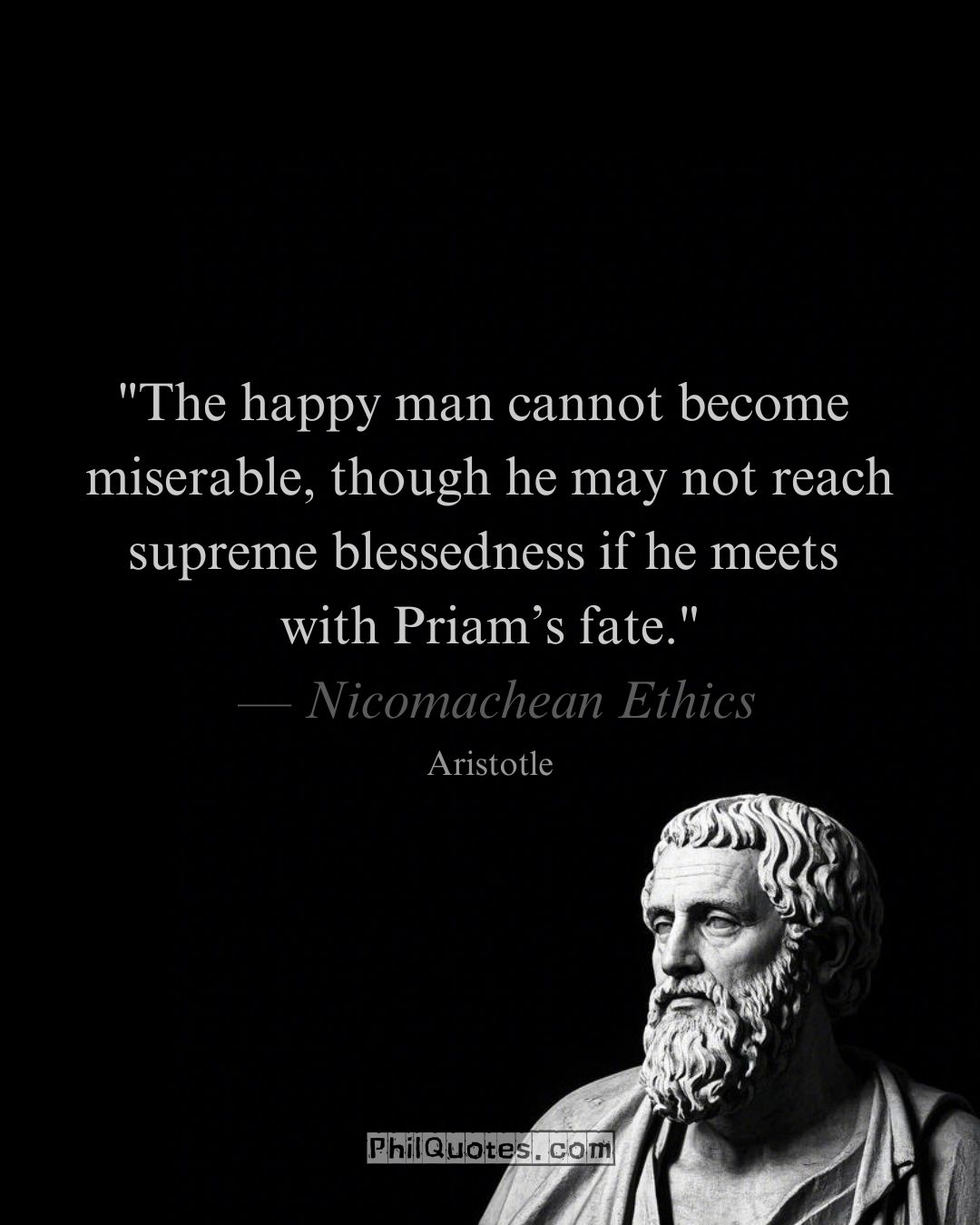
“The happy man cannot become miserable, though he may not reach supreme blessedness if he meets with Priam’s fate.”
— Aristotle, Nicomachean Ethics, Book I, Chapter 10
Explanation:
Aristotle distinguishes between core happiness (eudaimonia) and peak blessedness. While a virtuous person’s fundamental joy remains unbroken by adversity (like Priam’s Trojan War losses), catastrophic suffering may limit access to life’s fullest radiance — akin to a diamond retaining hardness but losing its sparkle under volcanic pressure.
Real-World Connection:
① Ethical CEO in Crisis →
You lead a carbon-neutral company for 20 years (stable virtue) → factories destroyed by floods (Priam-scale loss) → pivot to disaster relief training (preserved purpose) → prove happiness rooted in character, not circumstances.
② Pandemic Healthcare Worker →
A nurse serves tirelessly (daily courage) → loses colleagues to COVID (collective trauma) → mentors new medics (partial blessedness) → show virtue as grief’s antidote, not eraser.
③ The Hidden Spectrum →
- Unshakable Base: Resilient virtues (integrity, gratitude)
- Fragile Peak: External conditions (health, peace)
- Recovery Protocol: Community bonds, artistic expression, legacy projects